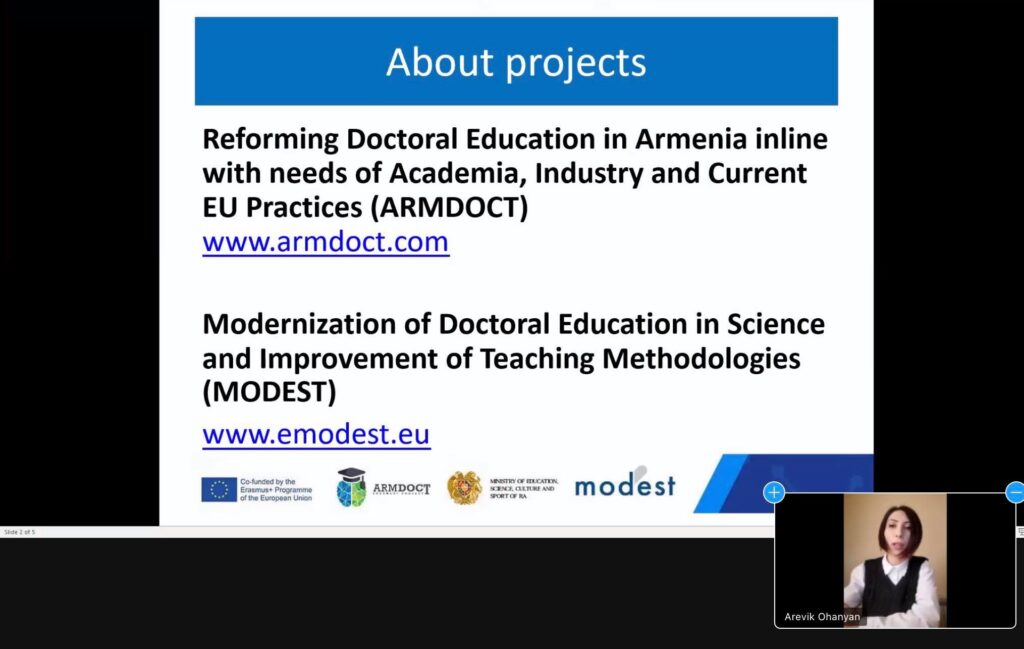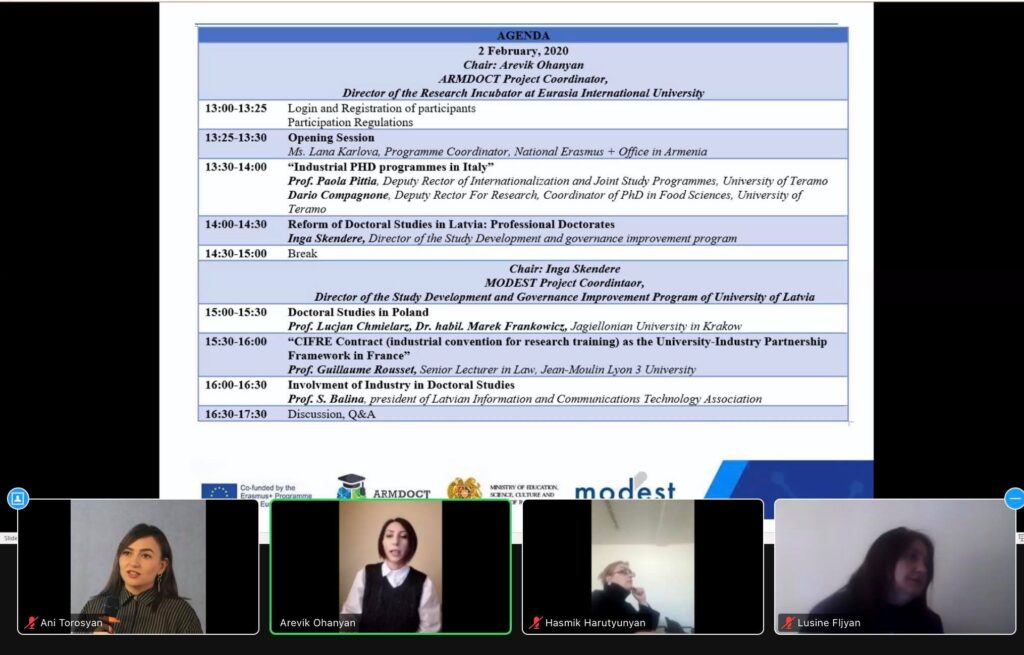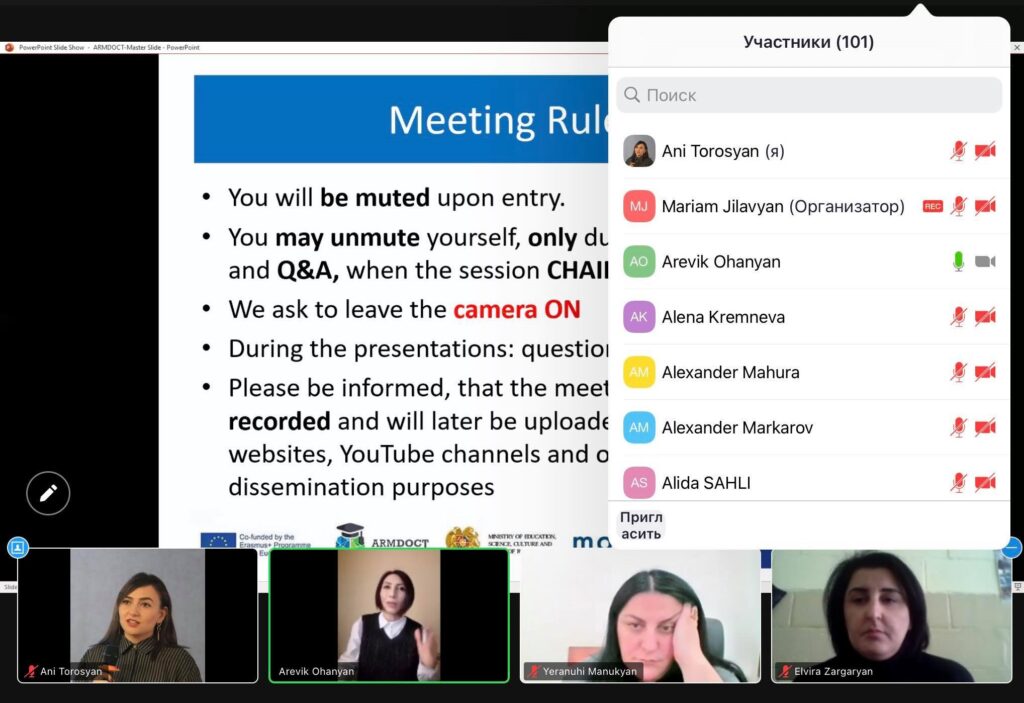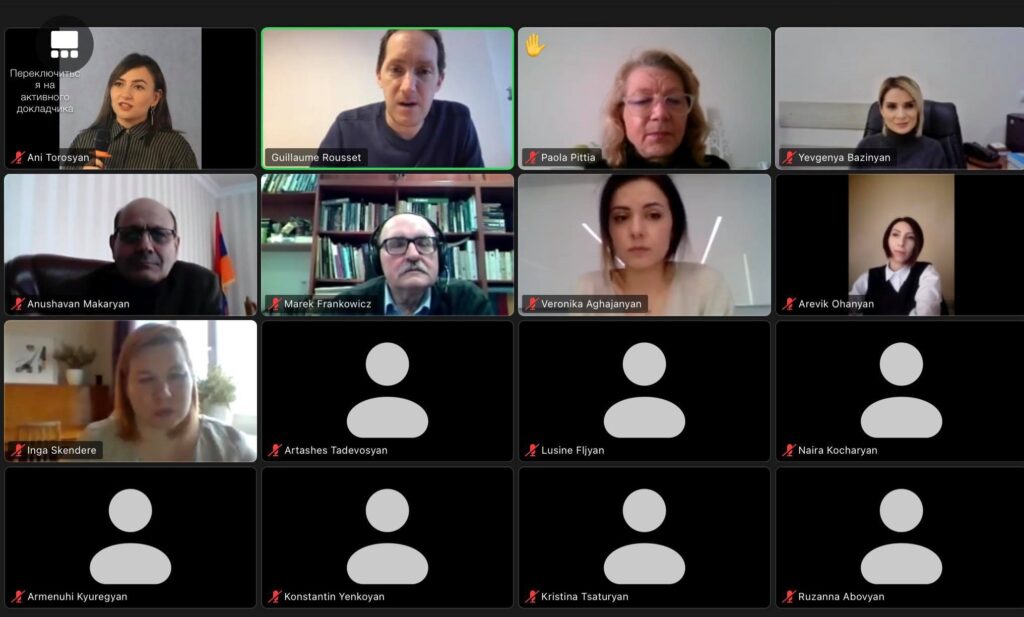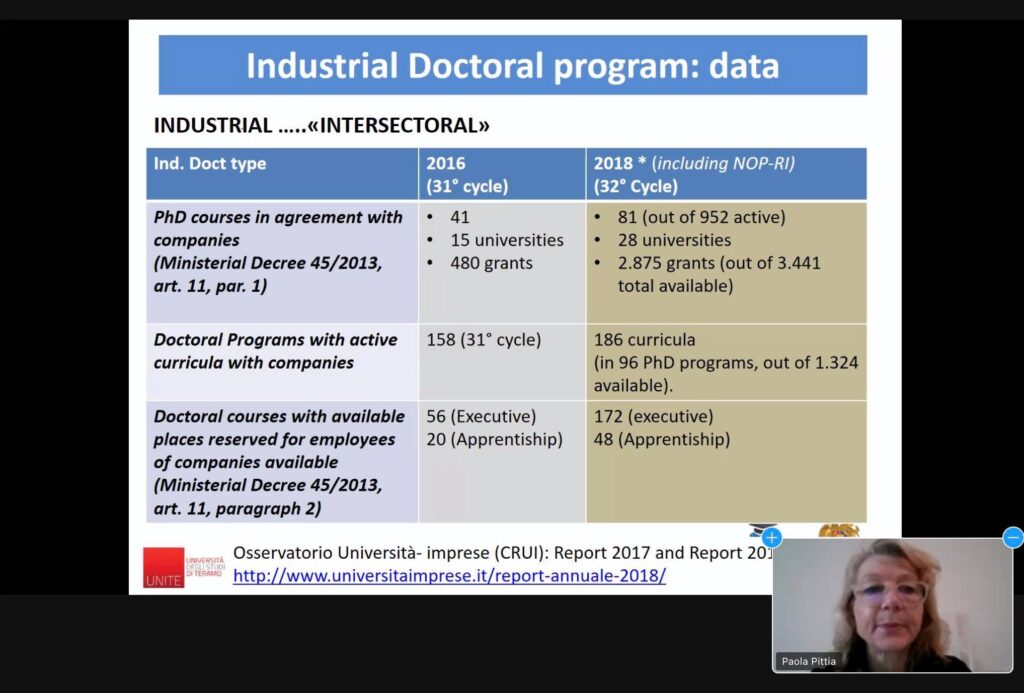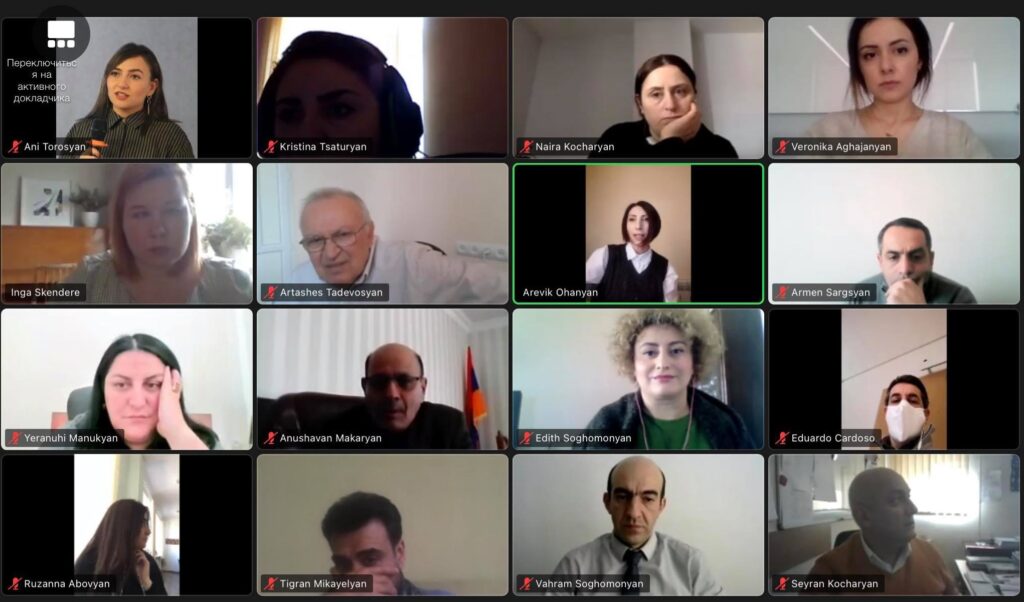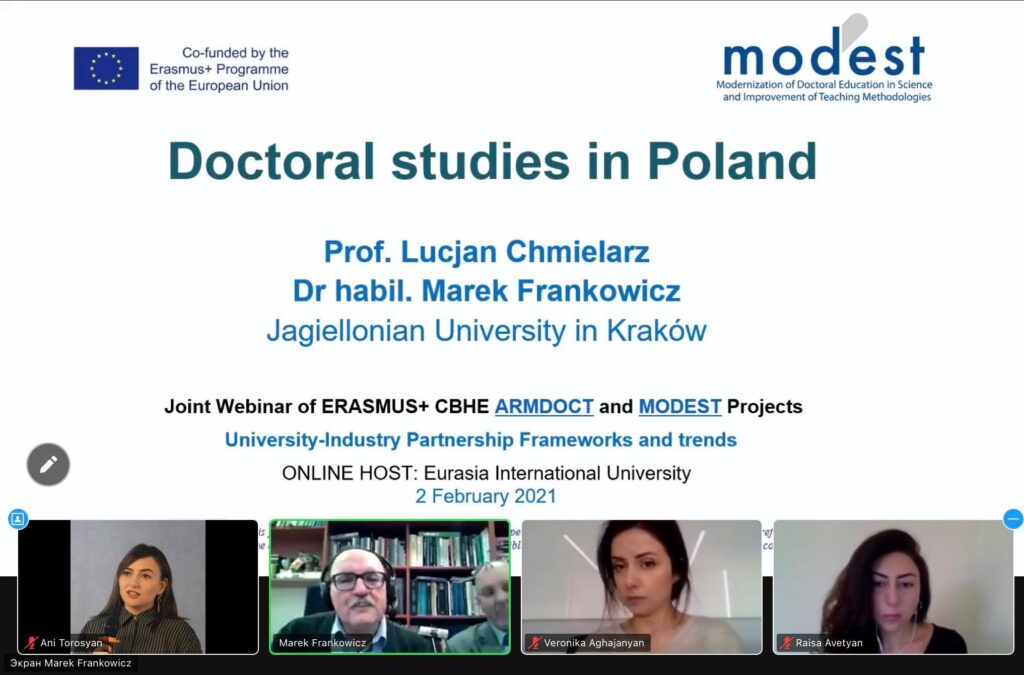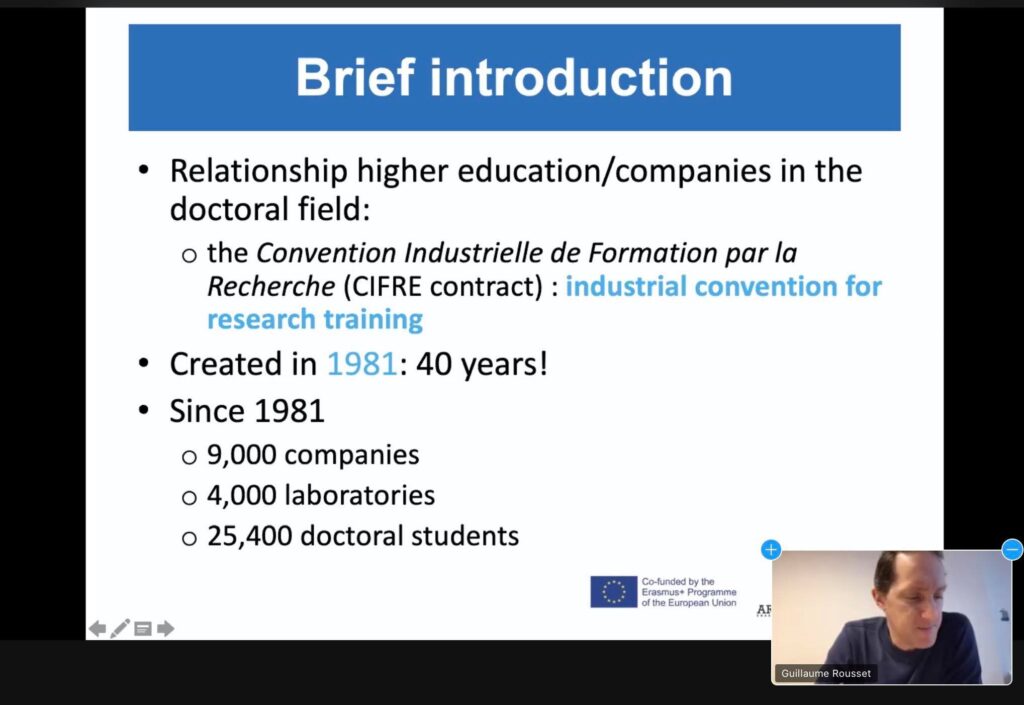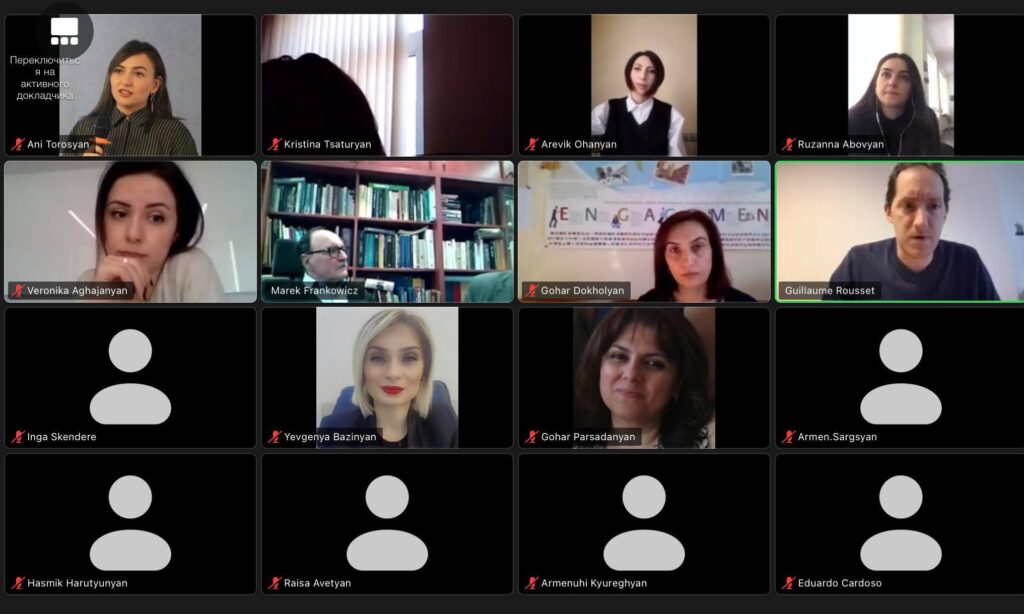Erasmus+ CBHE “ARMDOCT” and “MODEST” Projects Initiate a Joint Online Webinar
On 2 February 2021, the consortium partners of Erasmus+ CBHE “ARMDOCT” and “MODEST” projects initiated a joint online Webinar on “Collaborative Doctoral Education: University-Industry Partnerships.” More than 100 participants met online to explore the practices of collaborative doctoral program organization, national policies and structures, university-industry partnership schemes applied in Italy, Latvia, France and Poland.
The event convened with a welcome speech by Lana Karlova, Program Coordinator of the National Erasmus+ Office in Armenia. Ms Karlova highlighted the importance of sustaining constant dialogue between the industry and academia to build a knowledge-based society.
Prof. Paola Pittia, Deputy Rector of Internationalization and Joint Study Programmes at the University of Teramo, presented the Industrial PHD programmes introduced in Italy by the Ministerial Decree of 2013. Industrial PhDs were set up taking into account the shared interests of universities and businesses to promote innovative research opportunities, knowledge and skills transfer focused on training and learning processes.
“MODEST” Project Coordinator, Director of the Study Development and governance improvement program at the University of Latvia Ms. Inga Skendere talked about Latvia’s doctoral education reform experience. According to her Latvian Government’s Action plan foresees the introduction of a new Doctorate Model, which will ensure development of competitive study programs, implementation of tenure track system, application of relevant mechanisms for consolidating Higher Education (HE) and research resources, establishment of HE quality monitoring systems.
Ms. Signe Balina, President of Latvian Information and Communications Technology Association, complemented Ms. Skendere’s speech underlining the importance of involvement of industry in study programmes via industrial PhDs.
Doctoral Studies in Poland were presented by Prof. Lucjan Chmielarz and Dr. habil. Marek Frankowicz from Jagiellonian University in Krakow. Full time doctoral programmes in Poland usually last 4 years. In addition to research, they usually contain several compulsory training components. The specific training each PhD student needs to complete is specified by the university’s Doctoral Study Regulations. PhD students may also undertake up to 60 hours of formal teaching. Tuition fees are not charged; instead, all PhD students receive a scholarship (450-700 Euros monthly).
As stated by Prof. Guillaume Rousset, Senior Lecturer in Law, Jean-Moulin Lyon 3 University, the “CIFRE Contract” (industrial convention for research training) defines the University-Industry Partnership Framework in France. It aims to end the separation between public university research and private companies. The contract provides a firm that hires a doctoral student who will work in a research collaboration with a public laboratory with a subsidy of € 14,000 over a three-year period. These contracts are financed by the Ministry for Higher Education and Research.
The best practice presentations of “ARMDOCT” and “MODEST” project partner EU countries were followed by a discussion and Q&A session.
The Presentations can be accessed below.


